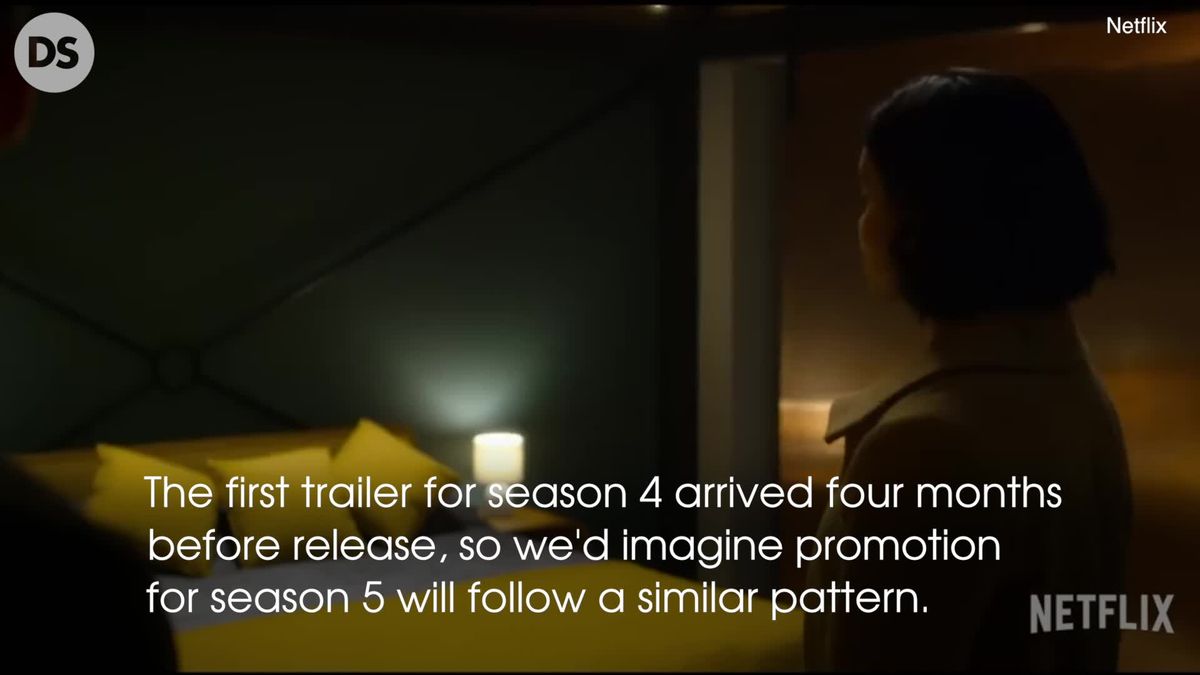Yesterday Netflix made one giant leap toward interactive television with the announcement that one episode from the forthcoming fifth season of Black Mirror would feature a Choose Your Own Adventure episode.
In Charlie Brooker's dystopian series, viewers will be allowed to control the storyline to determine the plot and character's outcome. It will be the streaming service's first interactive venture beyond animated children's shows Puss in Book: Trapped in an Epic Tale and Buddy Thunderstruck: The Maybe Pile (both highly recommended).
Interactive viewing has long been floated as the future of television but is only now becoming a reality. In January this year Steven Soderbergh’s interactive HBO series The Mosaic allowed viewers to download an app on which they could tailor around 7.5 hours of content to what they wanted to watch.
The app allowed you to shift between different character's perspectives in the stories branching narrative. It allowed some creative control to the viewer who was able to decide where to take their attention next. “It’s not a TV show, and it’s not a movie,” Soderbergh told The Verge. “It’s something else.”
While "something else" certainly sounds new and exciting, The Mosaic polarised viewers and critics, with the amount of evidence you were allowed to examine in order to investigate the crime feeling overwhelming and fostering the anxiety you were missing something crucial.
It is worth noting that as a murder mystery the storyline was particularly suited to the idea of pursuing different characters - and that HBO later aired all hours of content in a six episode linear format on television anyway. Which does somewhat raise the question of what exactly the point is.
Using one episode of the hugely popular Black Mirror to test whether interactive television has major appeal is a smart move, it means Netflix don't have to gamble on a new series and new concept but can instead test a captive audience.
Netflix already bridge the gap between games and entertainment more than we perhaps realise with their algorithm, which does everything it can to keep you watching. The company has 76,897 unique ways to describe types of films to ensure they can find and recommend what each of their 40 million users wants to watch next.
A company that is able to log the exact moment you stopped watching Orange Is The New Black or precisely what you wanted to see after Stranger Things is, one would expect, in pole position to understand what different viewers want to see next from a storyline.
As well as testing the feature on Brooker's series, Netflix are close to confirming at least one more interactive live action series and later this year will launch an interactive ‘story mode’ version of popular game Minecraft. It won't be a traditional video game but instead bridge the gap between gaming and streaming: "Games have become increasingly cinematic, but we view this as interactive narrative storytelling on our service," they said.
Minecraft is part of a deal Netflix have made with Telltale Games which includes a future project to turn Stranger Things into a video game. The video game developer, whose breakout success was a game adaptation of comic book and TV series The Walking Dead, recently revealed they approached HBO about a Game of Thrones game though were turned down.
And Netflix aren't the only technology behemoth trying to catch audiences attention with a shiny new way to consume entertainment. In June this year Facebook launched Facebook Watch which allowed viewers to answer polls and quizzes while watching shows in order to "foster a greater sense of community between creators and users."
While this doesn't exactly fulfil the promise of allowing you to control what you're watching, it does indicate they are keen to make viewing less passive and recapture some of the interactive attention young people have given over to social media and gaming.
Streaming services have revolutionised watching by giving audiences endless choices about their viewing. Would allowing even more control energise us, or just inspire deep malaise in a world already plagued by information overload?
With Netflix projected to spend $13bn on original programming this year they are already facing criticisms of quantity over quality. In reality, interactive television may just be another headline grabbing gimmick which makes us believe the format has been reinvented. Soderbergh's The Mosaic was criticised for giving people "the illusion of choice" as viewers could only choose the order in which they watch a series of events, not gain any control over the outcome.
If we're just chopping up series to decide which episode to watch first, it's hard to see what can be gained and easy to envisage what will be lost.














